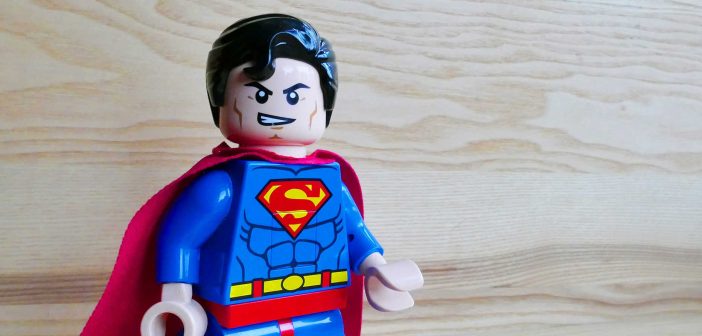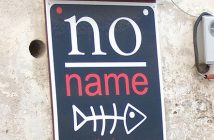Why Trusting Yourself is the Most Important Business Lesson You’ll Learn
The great thing about starting a business is that there’s tons of free information available right at your fingertips. The terrible thing about starting a business is that there’s tons of free information available right at your fingertips.
If one side of the coin is an abundance of free information, the other side of the coin is the overabundance of free information. Too much of a great thing, including all the free advice, assistance, counseling, training, and knowledge you could possibly need as a new business owner, can quickly move from exhilarating to exhausting.
Best case scenario, you drive yourself crazy trying to put all the pieces together before figuring out that you’ll actually have to do something with all this knowledge you’ve gained. Worst case scenario, you do what I did: you let overabundance of information (and their implicit choices, risks, and consequences) paralyze you.
It’s great to be aware of all your options for learning about business, seeking out training resources, and getting assistance from experts in your industry. But it’s even better to be aware of yourself, and to acknowledge when it’s time to stop learning and start doing. If I’d have learned that earlier, I could have spared myself a lot painful days and sleepless nights.
Finding Free Information Online: Buyer Beware
When I started my first solo venture, I took to the internet to learn everything I could about starting my own business. Some of the info I found was great. Some of it was crap. Most of it might have been great for someone else, but was crap for me. Of course, it was up to me to determine whether any and every piece of business advice I received was great or crap. And I didn’t always know it was crap until after I tried it and failed. The “trying” part is something I couldn’t read about on a website. I couldn’t click to it from a LinkedIn post. I couldn’t look for it in an MBA course syllabus. That’s something I could only learn by doing.
Don’t get me wrong: learning and research are invaluable to the first-time business owner, and information-gathering is an essential first step in starting a business. Thanks to a plethora of free information online, I got amazing advice from people who had already succeeded in doing what I planned to do. I gained insight into common mistakes from serial entrepreneurs. I watched highlights from business school lectures, and joined webinars with industry leaders. I enjoyed a wealth of information from people who had already been where I was, who shared the same concerns, and who had even more to lose than I did.
Everyone I learned from had managed to move forward despite their fears. They’d worked hard to persevere through the many and often devastating setbacks. And they’d managed—and worked—to gain the success they enjoyed today. That gave me hope as I ate up all the business lessons, advice, learning, and warnings I could possibly get my hands on.
The trouble was, I had almost no context to help me give meaning to all this information. When I read about tips and advice for preparing a business plan, I couldn’t possibly predict the heartbreak I would later feel when said business plan ultimately failed an entire organization. When I learned about options for securing funding, no one discussed what I should do when three huge opportunities fell through at the same time, leaving me with no hope and no lifeline. When interviewing lawyers to prepare myself for the inevitable unpaid invoice, they left out the part where they’d later break it to me that taking a slimy client to court would end up costing me even more than the invoice he’d wormed his way out of paying.
I had to learn about all that on my own. It was one thing to read about the possible setbacks I would face as a business owner; actually facing those circumstances in the real world was a completely different lesson. When I was finally faced with the setbacks I thought I’d prepared for through my reading, researching, pondering, and planning, I learned a lot more about who I am as a person, and who I needed to be as a business owner. And it’s an ongoing lesson.
The Fear of Failure
No matter what the source of my learning—be it a blog post I read, a business owner’s biography, an exclusive webinar, or a workplace lesson from a trusted mentor—once I had the education, it was still up to me to put it into practice. I had to do it. I had to act. And putting my learning into action meant opening myself up to failure.
For me, that fear of failure led to an excruciating, ongoing period of time spent stagnant. When I started to worry about failing in something I wanted to accomplish with my business, I took to the books (rather, to Google) to read yet another blog post, to sign up for yet another webinar, to troll the comments section of yet another business article. I did this all under the guise of “research” to better prepare myself to complete a task, or make a decision. I did this under the pretense of making sure I had all the information before making a decision. I did this with the hope that there might be some secret, magical business spell I had somehow missed—a quick, easy answer that would stave off the failure, and thanks to my extensive research I was the only person who was clever enough to see it.
But really, I was stalling. It’s pretty obvious. I was too afraid to make a decision, act on it, and reap the rewards or consequences, whatever they may be. Rather than run my business like a boss, I cowered in the corner.
I wish I could say there’s an easy fix for this. But the painful truth is that the best way I know to overcome this fear of failure is to get out there and start failing. Get used to it. If you’re going to be successful in business, failure is bound to happen sooner or later. And often. As frightening as the notion of failure was (and still is) for me, the implication of not failing—which means never having tried, never having put myself out there—is even worse.
Dealing with Information Overload
Fear of failure isn’t the only fear I faced as a new business owner. There’s another dangerous symptom to the overabundance of information. It’s a common problem that anyone in today’s society of excess understands: having more options does not always equate to having more happiness. It’s often quite the opposite.
In my own self-studies on starting a business, this overabundance of options available, of choices I could make in how to approach a given task, project, or problem, led to a major information overload. I had all the knowledge at my fingertips, but I didn’t know what to do with any of it. So I did nothing. In asking a question, I could quickly access a dozen responses from a dozen sources with a dozen different opinions, options, experiences, success stories, and failures. I know well the crippling feeling of indecision—being paralyzed by too many options, too many alternatives, too many warnings, risks, what-ifs and here’s-why’s. It’s something I still struggle with today, almost a decade after starting my first business.
I compare it to paralysis, but really what’s driving it is, once again, fear. It’s a fear that, by taking one route over the other, I’m taking the wrong route without realizing it. In the past, when my decision paralysis prevented me from making any forward movement in my business, I finally got the bright idea to stop and think for a second—not about whether to take this route or that route, or heed this expert’s advice or that guru’s warning: I stopped to think about what I was really risking with my inaction.
In taking one route, it’s true that I might miss out on the rewards had I taken the other. It’s true that I might realize, later on, that it would have been smarter to approach things a different way. But by taking neither route, thus stalling indefinitely, I was risking much more than a different set of hypothetical rewards and consequences. My decision-making paralysis meant risking the ability to pay my mortgage when I couldn’t decide which client to pitch to, and I ended up losing out on both because I couldn’t pull the trigger on either. Not acting quickly enough on an opportunity (because I feared doing a bad job) meant losing time spent on my marriage when I was busy working to get my business back on track later on. My decision paralysis has cost me sleepless nights lost to worry, and days spent in heart-pounding stress as I try to make up for lost time with due dates and bottom lines. I truly believe it has shaved years off the end of my life.
And for what? Because I was too bogged down with choices to pick even one? Because I was too afraid of making the wrong decision? I let an endless supply of information about my business prevent me from actually doing business. When I used to get that stuck, it was easy to go back to relying on the bloggers, the gurus, the speakers, and the authors to give me answers. But what I quickly realized was that my most important lesson was in trusting my own ability to make decisions, to take action, even when I didn’t have all the answers. Sometimes we as business owners have to make assumptions when we don’t have all the knowledge. And we have to take responsibility when we make the wrong decision or move forward with the wrong information. Not doing so can cost us more than just our business.
Learning to Trust Yourself
It took me a long time to learn that. I still struggle to remember it, to apply it, and to stop being so hard on myself when I take a wrong step or make a mistake. That’s always been a struggle for me, and it’s only gotten more difficult now that I have other employees relying on me to make good decisions for my company—our company—on their behalf.
Being able to trust oneself is a difficult lesson, and it’s a never-ending one at that. But for me, it was the best business lesson I ever learned. And it’s not something I could have gained by rifling through business journals, listening to entrepreneurs talk at me from the other end of a computer screen, or reading a blog post just like this one from someone who’s been-there-done-that.
It’s something I could only have learned through the sheer act of doing. Deciding, acting, doing, failing, and trusting in yourself to move forward. More so than anything else, that’s the best way I know to learn about business.




